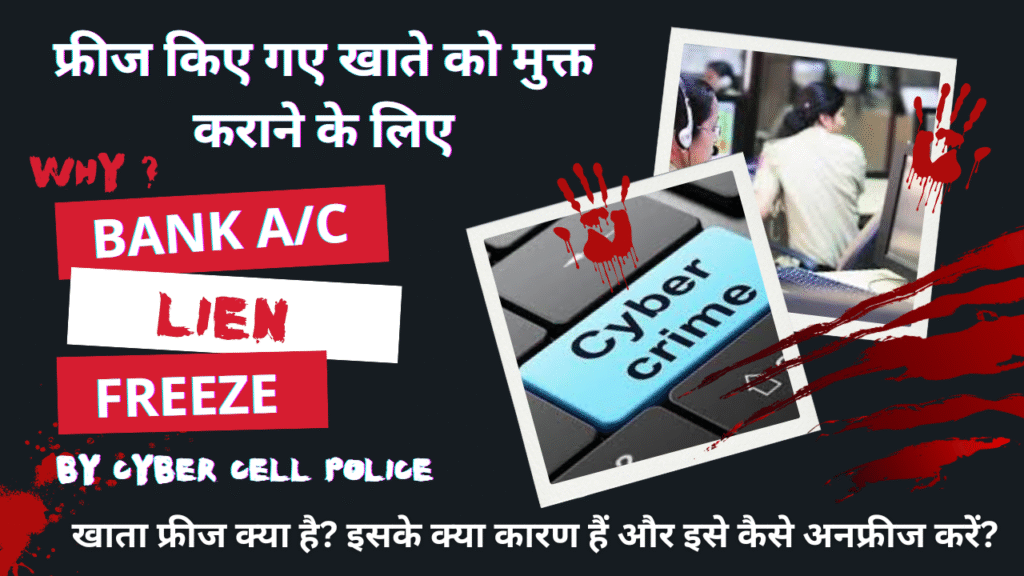What Is a Mule Account?
A Mule Account is a bank account used by fraudsters to receive, hold, or transfer money obtained through online scams, such as: Investment scams Fake job scams Gaming app fraud USDT / Crypto fraud P2P scams Social media scams Online loan scams Digital arrest scams The person operating or allowing the use of the account is called a Money Mule — sometimes knowingly, sometimes unknowingly. A mule account is often used to hide the identity of the real scammer. Why Are Mule Accounts Used? Fraudsters never use their own bank accounts. They prefer mule accounts because: It hides their identity It becomes difficult for cyber police to trace the main scammer Money can be quickly transferred to multiple accounts Scammers withdraw or convert funds into USDT/crypto Mule accounts act as a shield between scammer and victim This way, the real criminal remains hidden while the mule becomes the first suspect. Types of Mule Accounts 1. Knowing Money Mule People who knowingly allow scammers to use their accounts for commission. 2. Unknowing Money Mule People who share their bank account due to: online job scams loan offer scams KYC update fraud fake part-time work These people don’t intend to help scammers but still get involved. 3. Forced Mule Account Where someone’s identity is stolen and the scammer opens an account in their name without consent. How Does a Normal Person Become a Mule? People become mule accounts when they: Receive money from an unknown person Do P2P transactions without knowing the source Allow someone to use their bank UPI/ATM Share OTP or banking login Open an account on someone’s request Post bank details online for “work-from-home” tasks Respond to “easy commission job” scams Even if the person did not intend fraud, the law considers the account owner responsible. Legal Consequences of a Mule Account If your account is used as a mule account, legal consequences may include: Bank freeze / lien Cyber police notice FIR under IPC 420, 406, 120B Charges under IT Act 66C/66D Summons for questioning Financial loss + reputation damage Even if innocent, you may have to prove you are not involved. How to Know If Your Account Is Being Used as a Mule? Signs your account may be misused: Sudden unknown deposits Large amount credited and quickly debited Bank freeze message Cyber police email or call Return-to-origin (RTO) of funds Bank asking for “source of funds” Payments coming from strangers If any of these happen, treat it seriously. What To Do If Your Account Is Mistaken as a Mule Account? Follow these steps immediately: Step 1: Do NOT withdraw or transfer the suspicious money This is the biggest mistake. Step 2: Inform your bank Tell the branch manager that you did not expect the transaction. Step 3: Collect proof Keep: chat screenshots bank message UTR identity proof Step 4: File a cyber complaint Report the matter at the cybercrime portal. Step 5: Apply for NOC (if account is frozen) Submit application to cyber police + bank. How to Avoid Becoming a Mule Account? Never share bank account with strangers Avoid P2P or USDT transfers from personal account Do not accept “commission-based” jobs Never receive unknown money Do not post bank details online Avoid giving ATM/UPI access to anyone Avoid fake job or loan scams A “Mule Account” is one of the biggest causes for bank freezes and cyber police notices.Most innocent people get trapped when they receive money unknowingly.Awareness and timely action are the only protection. DISCLAIMER This content is only for public awareness and educational purposes. It is not legal advice, not a promotion, and not a solicitation. If you are a victim of cyber fraud or your account is frozen, call 1930 or report it on the official cybercrime portal immediately.









